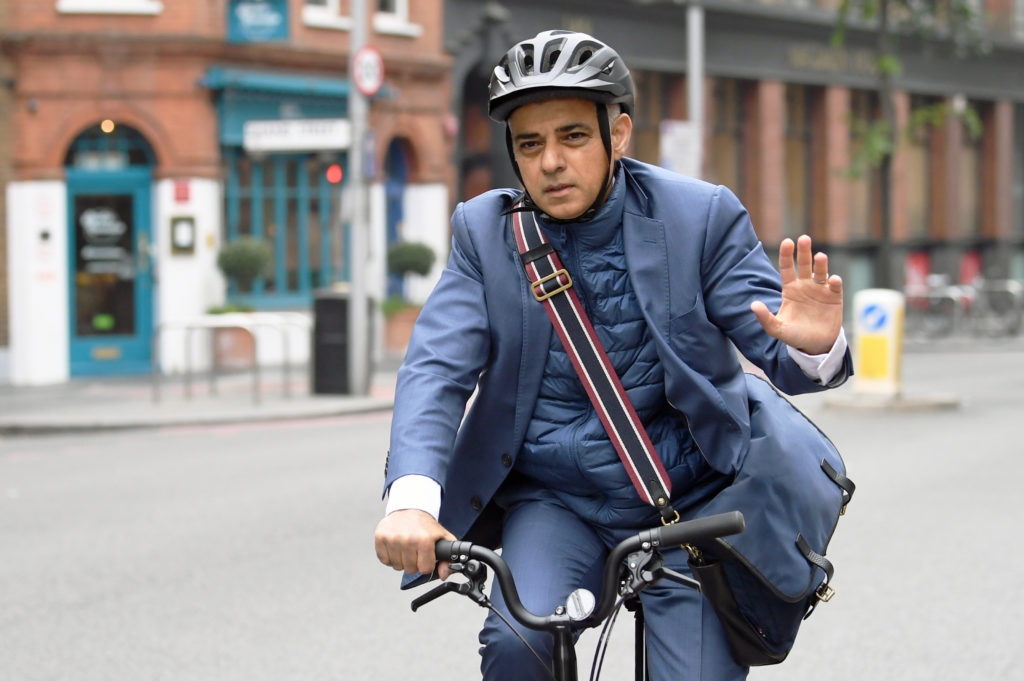With cannabis reform becoming a central issue, London’s Mayoral race has hit fever pitch just weeks before election day. Late on Monday evening, Sadiq Khan announced his manifesto with a pledge to set up a commission looking at the impacts of drugs, in the same week that London’s transatlantic cousin, New York, announced that a legalisation bill had been passed.
This shift, whilst seemingly sudden, has been in the offing for quite some time, and the moment is right for progressive, economically sound reform in metropolitan cities.
Whilst the commission is set to explore alternative policy approaches to drugs, including legalisation, a change in the law would be beyond the remit of the London Mayor – but there is still plenty that can be done.
Cannabis interest in the capital was kickstarted in 2019 when the Evening Standard newspaper, under the leadership of Investigations Editor David Cohen, ran a major campaign which started with a front page asking “Is It Time To Legalise Cannabis?”


The headline was accompanied by a startling poll carried out by Volteface and the Standard – that nearly 2 in 3 (63%) of Londoners back the legalisation of cannabis. It was at this point that the penny dropped: cannabis reform in London is a vote winner, probably for the first time ever in the UK.
Pinpointing exactly why this has happened seems simple, too. Aside from the obvious liberal attitudes in the metropolitan cities, there are clear social and racial justice arguments for reform.
You are four times more likely to be stopped and searched in London if you are Black, compared to if you are White. Almost half of all stops and searches in England and Wales are carried out by London’s Metropolitan police. This is unhealthy, and it is arguable that this played a part in last year’s Black Lives Matter protests – policing is unfairly targeting young Black men and the public are appalled by it.
Whilst some will say ‘cannabis is basically decriminalised anyway’, this could not be further from the truth. Damien Egan, Mayor of Lewisham, told Volteface that: “In 2019, 49 teenagers in Lewisham were sent to court for first time drug offences. Most of these cases were related to cannabis and 43 out of the 49 children were from a Black, Asian or Minority Ethnic background.”
Egan asks “why so many politicians in the UK seem scared to talk about the harm our drug laws are causing,” and there is merit in this question. Candidates including Siobhan Benita (who has now pulled out), Sian Berry and Sadiq Khan have all taken progressive approaches to drugs in the capital.
Strategically, cannabis reform is a popular policy that mirrors the polling of same-sex marriage before this was reformed.
Whilst politicians have been slow to the party, Alastair Moore, Founder of First Wednesdays, a network of 4,000 cannabis investors and entrepreneurs, suggests that the public are advancing reform at pace. Recent changes that have allowed cannabis companies, such as CBD company Kanabo to list on the London Stock Exchange, are allowing UK investors to get a piece of the cannabis pie before the banking institutions.
Moore told Volteface: “The opening of public markets is incredibly important as it allows companies to raise capital from the public, whilst it remains far harder to raise money through financial institutions. The reason for this is that the person on the street is far ahead of politicians.”
Moore’s comments stand up to scrutiny, with a Yougov poll yesterday revealing that an enormous 52% back legalisation, with only 32% opposed.
Whilst legalisation is beyond the scope of the London Mayor, London could still see some sweeping reforms, given that the Mayor also acts as the Police Commissioner for London.
One major reform that would tackle drug-related racial disproportionality would be a shift away from criminalisation, and in particular the practise of stop and search. In other parts of the UK, such as Durham and the West Midlands, police divert those caught with small amounts of cannabis away from the criminal justice system and through ‘diversion schemes’. In essence, these are ‘awareness courses’, similar to those in place for speeding offences.
Most importantly, they do not leave a criminal justice footprint which blights prospects of young (mostly Black) men. Diversion schemes save police time, remove strain on the overstretched criminal justice system and educate those caught on the harms associated with drug use.
Diversion schemes, which are proven to be effective, could be the catalyst to engineer wider reform across the country. George McBride, CEO of cannabis consultancy Hanway Associates argues that Prop P in San Francisco kick-started a movement that looks like it might finally end with federal reform in the near future.
McBride states: “The modern wave of cannabis reform can be traced back to California in 1990. San Francisco endorsed Proposition P calling on the Californian government to recognise the medical value of cannabis. The city had no legal jurisdiction to legalise or decriminalise but nonetheless the symbolic declaration had a profound impact around the globe. It created an environment for dispensaries to operate openly and that in turn fuelled reform at the state level.”
Polling has proven that cannabis is a vote winner, and whilst the public are still way ahead of their representatives, it is only a matter of time before the politicians wake up and smell the cannabis. Should he be re-elected, could Khan’s commission set off the green revolution that reformers are crying out for?
Anthony Lehane is Head of Communications at drug policy advocacy organisation Volteface.
Founded in 2015, Volteface is a third sector organisation which seeks to reduce the harm drugs to cause to society and individuals.
Twitter: @antlehane @voltefacehub









